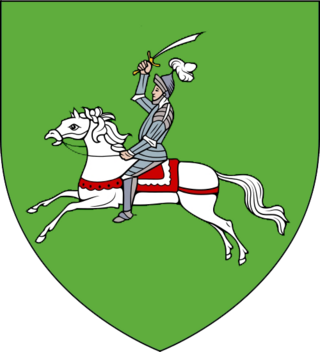Boyle is an Irish, Scottish and English surname of Gaelic or Norman origin. In the northwest of Ireland it is one of the most common family names. Notable people with the surname include:
Jardine is a surname. Notable people with the surname include:
Faulkner is a name variant of the English surname Falconer. It is of medieval origin taken from Old French Faulconnier, "falcon trainer". It can also be used as a first name or as a middle name.
Jennings is a surname of early medieval English origin. Notable people with the surname include:
Lucas is a surname. Notable people with the surname include:
Colston is a surname, and also a given name. The name has several origins. It is sometimes from a Middle English given name Colstan, probably from Old Norse kol "charcoal" and steinn "stone". It may also be an English habitation name, from Colston Bassett or Car Colston in Nottinghamshire, or from Coulston in Wiltshire.
Hussey is a surname. The surname is common in the British Isles, as well as locations associated with settlement by the people of these regions. The name has two main sources of origin. The first is of Norman origin, coming from the region of La Houssaye in Northern France. In Old French, the name relates to holly. Hussey also has an Irish origin, stemming from the Ó hEodhasa family.
Griffin is a surname of Irish, English and Welsh origin. Griffin was the 75th most common surname on the island of Ireland in 1891. It was estimated in 2000 that Griffin is the 114th most common surname in the U.S., with a population in the order of two hundred thousand.
Thomas Willoughby, 1st Baron Middleton, was a Tory politician who sat in the English and British House of Commons between 1698 and 1711 when he was raised to the peerage as Baron Middleton as one of Harley's Dozen.
Pickering is an English toponymic surname derived from the town Pickering, North Yorkshire.
Forster is a north English surname meaning "forester". It can also be an anglicization of Förster or Foerster, a German surname meaning the same. Some indigenous south Germans independently carry the name Forster, while East Prussian Forsters are descendants of an 18th century English Forster family. Notable people with this surname include:
Burnett is a Scottish surname. It is derived from a nickname from the Old French burnete, brunette, which is a diminutive of brun meaning "brown", "dark brown". Another proposed origin of the name is from burnete, a high quality wool cloth originally dyed to a dark brown colour.
Stafford is an English surname originating from Staffordshire which may derive from Anglo-Saxon meaning 'landing stage by the ford'. The Staffords may also refer to the people of Staffordshire. see also: de Stafford,de Staffort
Chisholm is a Scottish surname. Variants include Chisholme and Chisolm.
Fortescue is an English surname that originated from the old Norman epithet Fort-Escu. People with the surname include:
Burt is an English surname. Notable people with the surname include:
Boyce is a surname. Notable people with the surname include:
Purcell is a surname of Norman origin, and common in Ireland and England. It was given to those whose occupation was swineherd.

Bourke an Anglo-Norman Irish surname, a variant of the surname Burke, deriving from the ancient Anglo-Norman and Hiberno-Norman noble dynasty, the House of Burgh. In Ireland, the descendants of William de Burgh (c.1160–1206) had the surname de Burgh which was gaelicised in Irish as de Búrca and over the centuries became Búrc then Burke and Bourke.

The Maguire family is an Irish clan based in County Fermanagh. The name derives from the Gaelic Mac Uidhir, which is "son of Odhar" meaning "dun", "dark one". According to legend, this relates to the eleventh descendant of Colla da Chrich, great-grandson of Cormac mac Airt, who was monarch of Ireland about the middle of the third century. From the 13th to the 17th centuries, the Maguire family were kings of Fermanagh.
This page is based on this
Wikipedia article Text is available under the
CC BY-SA 4.0 license; additional terms may apply.
Images, videos and audio are available under their respective licenses.

